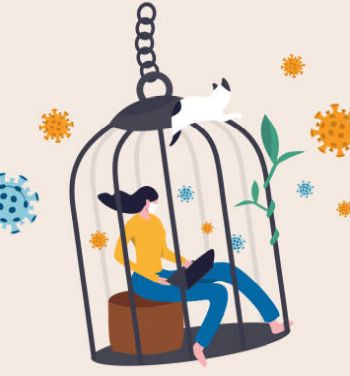Impact of COVID-19 confinement on food consumption pattern, physical activity and perceived body size of Nigerian undergraduates
Abstract
Background and objectives: Unhealthy dietary practices and physical inactivity are major contributors to overweight and obesity which is fast becoming a public health concern among adolescents and young adults globally. This study aimed to investigate the impact of COVID-19 lockdown on food consumption pattern, physical activity and perceived body size changes of Nigerian undergraduates.
Methods: This cross-sectional study used a snowball sampling technique to select 310 respondents. An online questionnaire link was forwarded to eligible respondents to elicit information on their dietary pattern, physical activity levels and perceived body size. Data collection for these indicators followed standard procedures and were compared with standard references.
Results: The pattern of fruit, vegetable, legume, and meat/fish consumption significantly increased during the lockdown. Snack, soft-drink and dairy products experienced a decline in consumption (p < 0.05). The physical activity MET (metabolic equivalent) score of respondents reduced from 3378.85 to 3097.02 MET minutes/week. Information on the perceived body size using body silhouette classification reported that lockdown accounted for an elevation in the perceived prevalence of overweight/obese (11.0% to 23.9%).
Conclusion: COVID-19 confinement improved some dietary practices of the undergraduates, but significantly contributed to a decline physical activity levels and an elevation in perceived body size. Designing effective approaches such as home-made physical activity routines, and local food production may help avert such outcomes of restricted access to the external environment.

Authors retain all copyrights. In making a submission to World Nutrition, they are certifying that all material is theirs except quotations, as indicated, and that they have obtained permission for any photos, tables, or graphics taken from other publications or websites.




